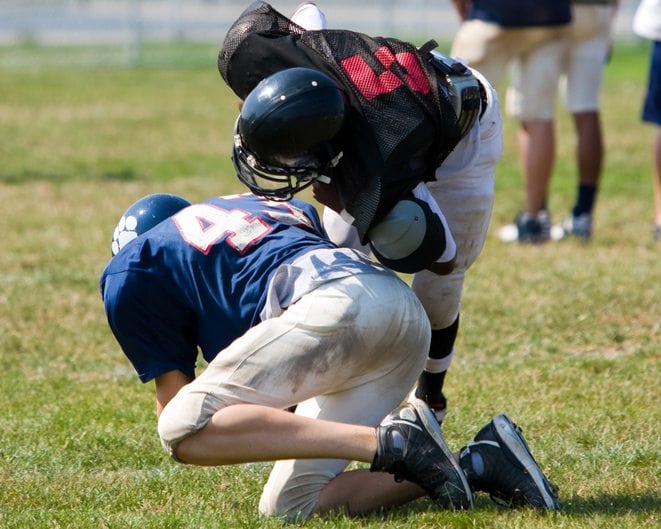<< Back
Is Saliva Test an In-Game Solution to Assessing Possible Concussion?

December 22, 2020
An athlete suffers a serious blow to the head and, on the sidelines, a trainer pops open a tube and asks for saliva to determine if the contact caused a concussion or the player can return to the game. Seems easy enough.
Easy, however, isn’t always accurate or preferred, especially when dealing with a complex condition such as concussion, according to Dr. Stephanie Alessi-LaRosa, associate director of the Hartford HealthCare Sports Neurology Program.
A study published by a Penn State University research team in Clinical and Translational Medicine suggests an accurate – and portable – way to diagnose concussions could be by examining saliva. The information, researchers say, is more accurate than patient reports or clinical judgment of a physician. But Dr. Alessi-LaRosa doesn’t agree, at least yet.
“Concussion remains a very complex diagnosis and cannot be simplified by this type of test as it currently stands, but it holds the possibility for this in the future with improved accuracy and reliability of the testing,” she said.
The researchers compared saliva samples from 251 people with concussion, or a mild traumatic brain injury, against samples from 287 without an injury. They found difference in levels of specific microRNA levels between the two, suggesting concussion disrupts signals from these biomarkers leaving evidence in such body fluids as saliva.
Some participants were also examined further with balance measures, standardized concussion symptom scales and computerized neurocognitive testing. Their saliva tests were found to be as accurate in identifying concussion as the more traditional approaches.
The current test, however, is imperfect, Dr. Alessi-LaRosa said.
“It is like with COVID testing, where there will be false positives and false negatives,” she said. “In the case of concussion, you wouldn’t want to be false positive if sports is your livelihood and you have to sit out, and you certainly wouldn’t want to be false negative and return to play too quickly. You could get a second impact which can carry a more detrimental outcome.”
Studying microRNA cannot replace clinical assessment of concussion or tracking a patient’s recovery, she continued.
“At this time, there is no better test than a clinical assessment by a physician with training in head injury like myself,” Dr. Alessi-LaRosa said. “In sports neurology, we have objective tests to tell when someone is concussed and downplaying symptoms based on their neurologic examination as well as testing to exert them and see that symptoms develop that cannot be hidden.”
Not every blow to the head will cause a concussion, but she said these are signs a person should seek medical attention the closest emergency department:
- Loss of consciousness.
- Repeated vomiting.
- Balance issues.
- Convulsions or seizures.
- Slurred speech.
- Weakness or numbness in arms or legs.
“Concussions represent a unique constellation of symptoms. The sooner patients are evaluated by a head injury specialist, the faster their recovery,” she said.